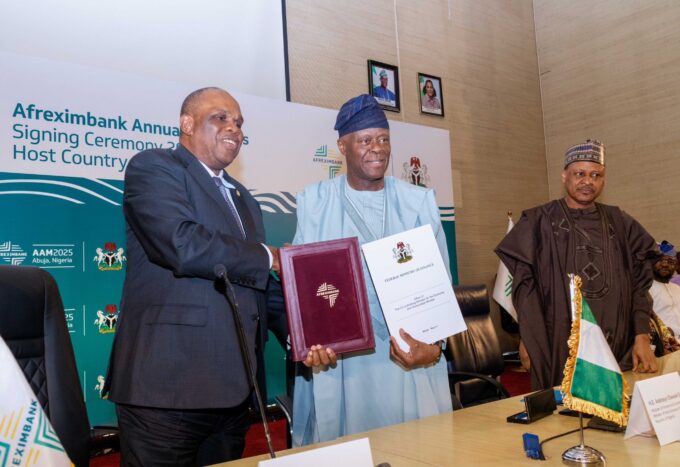The Federal Government of Nigeria borrowed about $3.27bn from five countries between June 30, 2015 and September 30, 2022, according to documents obtained by The PUNCH.
Data from the external loans reports obtained from the Debt Management Office showed that within the period, Nigeria’s borrowings from the five countries rose by 206.96 per cent from $1.58bn in June 2015 to $4.85bn by September 2022.
The five countries are China, France, Japan, India and Germany.
In June 2015, Nigeria had borrowed $1.39bn from China’s Exim Bank of China, $140.25m from France’s Agence Francaise Development, $43.10m from Japan’s Japan International Cooperation Agency, $11.73m from Germany’s Kreditanstalt Fur Wiederaufbua and nothing from India’s Exim Bank of India yet.
By September 2022, the bilateral debt profile rose with Nigeria owing China $4.09bn. It also owed France $526.48m, Japan $57.11m, Germany $153.06m, and India $27.17m.
Based on available data, it seems that Nigeria first accumulated debt from India under the regime of the President, Major General Muhammadu Buhari (retd.), with $14.79m recorded as debt from India in 2018.
However, China has been Nigeria’s largest bilateral creditor over the years.
The Federal Government had sought loan facilities from Chinese lenders to implement several infrastructural projects, including standard gauge rail lines.
In a document titled, ‘Status of Chinese loans as at September 30, 2021’, the DMO disclosed that 15 projects were funded with Chinese loans. Four of the 15 projects are rail-related.
The PUNCH recently reported that the Federal Government spent $548.67m (N246.11bn) to service railway-related debts between 2016 and 2022.
Nigeria’s current bilateral debt was 12.24 per cent of the total external debt of $39.66bn, excluding States’ external debt.
The PUNCH recently reported that Nigeria’s total external debt rose from $10.32bn on June 30, 2015 to $40.06bn as at June 30, 2022. It covered external borrowings by the Federal Government and States. It showed that there has been an increase of 288.18 per cent in seven years.
Nigeria’s external debt ballooned as the naira lost value, increasing Nigeria’s debt service burden and worsening its ability to service debt.
The International Monetary Fund recently said that the long-term rate of the depreciation of the naira equated to a loss of 10.6 per cent of its value annually since 1973.
According to the IMF, this rate was 1.5 times higher than the long-term rate of the currencies of other emerging markets and developing economies at 7.2 per cent and sub-Saharan Africa at seven per cent over the same time period.
The IMF said, “Its exchange rate underwent more persistent depreciation. Nigeria’s long-term rate of currency depreciation (on average 10.6 per cent annually since 1973) was 1.5 times higher than both EMDE (7.2 per cent) and SSA (seven per cent). Given limited availability of long-term data, it is difficult to estimate the exact reasons.”
The Bank of America recently said Nigeria’s local currency unit was set to weaken further next year as its current exchange rate to the dollar was well above fair value.
The Special Advisor to the Director (Custom Union and Taxation in ECOWAS), Gbenga Falana, while emphasising that the debt profile of most of the countries in the sub-region was mounting, stressed the need for West African countries to look inwardly and finance local projects through effective domestic resource mobilisation.
Experts have continued to warn that the continued increase in the nation’s debt stock, portends some risks for the country.
The Managing Director/Chief Executive Officer of Cowry Asset Management Limited, Mr Johnson Chukwu, said that high external debt would impose a huge debt service on the economy.
He said, “This will impose a huge debt service on the economy, particularly at a period when we have low revenue from oil sales. If the revenue from oil sales does not improve, then the government will be struggling to meet that debt service obligation to foreign lenders.”
However, he noted that Nigeria could service its foreign debt at the current level, but a constant increase in debt without a corresponding increase in foreign currency earnings could put the country in a difficult position.
The Chief Executive Officer of SD&D Capital Management, Idakolo Gbolade, cautioned the government on constant borrowing, adding that it should examine how it borrowed to save the unborn generation from unending debt.
He said, “Government borrowing to fund infrastructure is not bad but the problem is that the projects should be made to repay the loans.
“The government needs to look into this. For example, projects like roads should be tolled and proceeds used for repayments.”
A professor of Economics at the Olabisi Onabanjo University, Ogun State, Prof. Sheriffideen Tella, said there was a need for the government to change its orientation regarding borrowing.
He said, “We have to ask ourselves if it is possible to cut down borrowing. It is possible. We have to re-prioritise our projects.
“We tend to spend more on projects without being cost-effective. Also, can these projects repay themselves? If they cannot, then we are in serious trouble.”
Reacting, the Director-General of the Nigerian Association of Chambers of Commerce, Industry, Mines and Agriculture, Olusola Obadimu, said that while recourse to loans is not entirely bad for any economy, the issue of accountability has often cast a doubt as to how effectively the Nigerian government channels funds obtained through loans.
On the Federal Government’s claim that most of the bilateral loans were used to finance rail-related projects in the country, Obadimu said the merit of these projects had been dead on arrival due to the insecurity threat that hovers around rail transportation in the country.
He said, “The fact remains that a growing debt profile is not good, particularly when we cannot account properly for the developmental results accruable from the debts. Taking loans for which we cannot point towards the effect on the economy is not good. It’s not enough to say we are still within the acceptable debt-to-GDP ratio. It is a deeper issue. It will affect the value of the naira and the sovereignty of the nation.
“There are many components to this thing. Rail development is positive for the economy, no doubt. But what is the value of the money? If I take a N100 loan and use it for a particular purpose. Am I getting N100 worth of value out of that? When we look at what we have gotten out of the loan, does it equate with the amount? These are issues that need to be taken into perspective to ensure that we get full value for the loan taken.”
Source Punch














